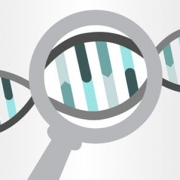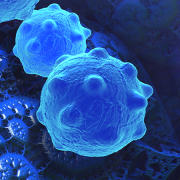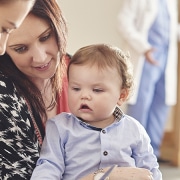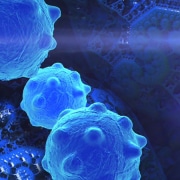Day in the life: trainee genetic counsellor
In the first article from a new series, STP trainee Alice Coulson looks at the invaluable role of genetic counselling in today’s health service
Genetic counselling is a communication process with patients that involves discussing the chance of inherited conditions, helping patients to make informed choices about genetic testing and reproductive options, and providing support at a time that can be stressful and highly emotional.
The training
I am part of the second cohort of trainee genetic counsellors recruited onto the NHS Scientist Training Programme (STP), a three-year traineeship based in a clinical genetics service which also includes the completion of a part-time MSc in Clinical Science. The first year of the Genomic Counselling programme involves rotations in genetic counselling and other clinical services that contribute to the patient pathway. This is followed by two years of specialist training and the completion of an individual research project.
There is really no such thing as a typical day for a trainee genetic counsellor! It is a very varied programme that aims to prepare us for the challenges and complexities of a career that is rapidly advancing as a result of improvements in genomic technologies and knowledge.
The consultations
Most of my days are spent observing consultations with patients. I have attended a wide range of consultations concerning many different genetic conditions, and this allows me to observe genetic counsellors using various techniques to explain complex information and provide support to families; considering and undergoing genetic testing can be a worrying and emotional time. I assist in these appointments however I can – in many cases simply by trying to put people at ease by talking about non-clinical topics whilst they are waiting or having their blood taken, for example. This experience is enabling me to develop my communication skills, which are absolutely vital to the role.
As my training has progressed, I have started leading parts of the sessions myself. For example, I recently assisted in a consultation with a man who had a family history of cystic fibrosis (CF) and was considering testing to identify whether he carried the genetic variation himself. Under the supervision of a trained genetic counsellor, I took a family and medical history, discussed the inheritance of CF and outlined the process, and implications, of genetic testing. As one of my first consultations, this was challenging, but my colleagues have been very supportive in preparing me. Following the appointment, I wrote a clear summary letter of our consultation – as is good practice – and, with the patient’s consent, sought the genetic testing reports of his family members.
Beyond the clinic
Outside consultations I spend time researching some of the complex disorders and genes that I come across so that I can be better prepared and more knowledgeable when dealing with similar incidents in the future.
I attend departmental meetings every week which allow me to practise presenting cases and find out about clinics I can observe, as well as learn more about how the department works together to provide the very best care to patients. I also prepare clinics for other genetic counsellors, which involves looking through referrals and notes to identify what needs to be covered in consultations, and finding suitable information sources for patients to access.
I have also been involved in several teaching days covering a wide range of topics. These have included cancer genetics update days for family history nurses, genomics education for healthcare professionals, and a fetal medicine update day. Being part of this activity is a really important part of the role; genetics is becoming increasingly important in healthcare and we can bridge the gap between specialist services and other departments.
Genetic counselling is challenging and exciting. Every day is different, and I’m looking forward to working with many new colleagues and seeing how the profession continues to develop as our understanding of genomics increases.
‘Day in the Life’ is a new series commissioned by the GEP with a focus on the key careers being shaped by rapid advances in genomics. The series features articles written by those who are training or early on in their careers.
–









